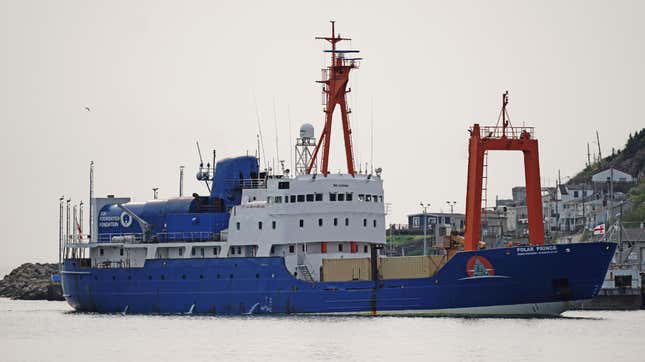
It’s hard to believe it’s been almost a year since OceanGate’s Titan submersible disappeared. Surely, that happened at least three years ago, right? After several days of searching, experts determined that the sub most likely imploded, killing everyone on board. Debris and possible human remains were eventually recovered, but that was it for the Titan submersible. Thanks to new research, though, we may finally have a better idea of exactly what went wrong. Or rather, new research appears to confirm what we knew all along — the sub was basically designed from the beginning to fail.
As the Independent reports, researchers at the University of Houston and the University of Minnesota were attempting to create a computer model to predict when small defects would cause different materials to buckle and recently published a paper in the academic journal Proceedings of the National Academy of Science. And while the paper wasn’t specifically focused on the Titan submersible, its lead author Roberto Ballarini didn’t shy away from talking about how what they’d learned highlighted just how bad the Titan’s design really was, saying:
The material used for the Titan’s hull was a carbon fiber composite. It is well known that under compression loading the fibers in such composites are susceptible to micro-buckling.
If the Titan’s hull experienced such damage under the extreme compressive pressures during its dives, then its stiffness and strength would have significantly decreased. Together with the inevitable geometric imperfections introduced during its manufacturing, [that] may have contributed to its buckling-induced implosion.
So yeah, as it turns out, building a submersible out of carbon fiber was a bad idea after all. Unfortunately, Stockton Rush, OceanGate’s founder and the man who was ultimately calling the shots and is responsible for the deaths of everyone on board is no longer here to answer for putting their lives at risk like that. And it’s not like he didn’t know he was taking unnecessary risks, either. Rush previously said, “At some point safety just is pure waste,” and even pointed out known problems to a YouTuber.
In the end, he ignored established engineering and safety standards simply to be different and save a little money, and he paid the ultimate price for it. It’s just too bad he wasn’t the only one down there when the sub imploded. The others who died didn’t deserve what he did to them.